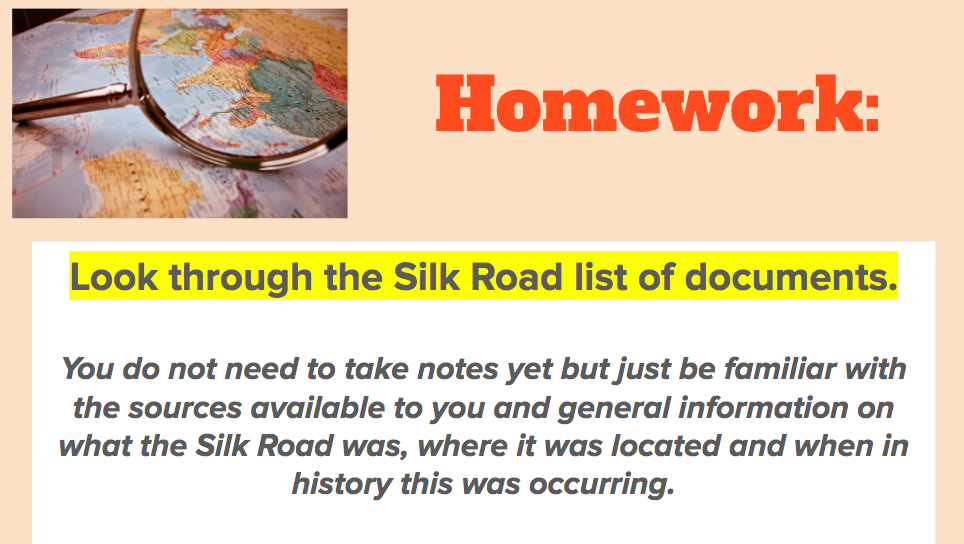|
Today's class will focus on finalizing your research portfolio so that you can receive feedback on your research methods and research note-taking skills.
Your ancient civilizations table of notes + summary + bibliography (within your Unit 1 research portfolio) is due by the end of today's class. Your formative work should include the following completed by the end of class today:
You will receive a formative score and receive feedback on the strengths and areas to work on improvement. Keep in mind that your research notes will eventually be assessed summatively (summative research portfolio due date is Oct. 4 for A Blocks and Oct. 7 for B Blocks) Based on formative feedback received, students should revise and improve any notes in this table prior to submitting them summatively. Any work that was "incomplete" or below the "meets" standard in the formative assessment should be improved by the summative due date. Comments are closed.
|
Mrs. Stewart's CourseYou'll find a daily agenda posted here for each day that class meets Archives
May 2020
Categories |

 RSS Feed
RSS Feed